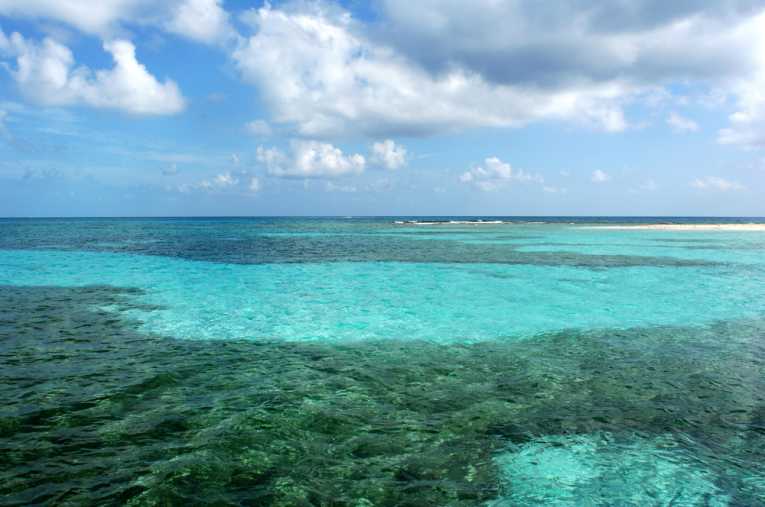Rosenstiel School of Marine & Atmospheric Science Miami University have researched the protection afforded by marine reserves over a 10 year span. They used 87 patch reefs in and around the world famous Belize location of Glover's Reef Reserve. A patch reef is an isolated reef outcrop, usually within a lagoon, often circular and surrounded by sand or sea-grass. Prof. Diego Lirman led a team of Brittany Huntington and Mandy Karnauskas, recording three major areas:
The coral cover, coral colony size, and abundance of juvenile corals.
They also looked at associated fish and macroalgae abundance. "We had hoped to find evidence of reserve protection benefiting the coral community as well as the fish community at Glover's Atoll. Unfortunately, the coral communities on protected reefs were in no better condition than the fished reefs," says Huntington. Instead of reef-building, "broadcasting" corals, there had been a shift over the ten years to smaller brooding species. The extreme low numbers of juvenile corals recorded here and elsewhere was one of the most worrying aspects of the results.

The Rainbow Parrotfish (Scarus guacamaia) is able to scrape a ton of Algae!. The young are found in nurseries in coastal mangroves. The trees are being carefully cleared to help tourists have access to beaches. Photo via Shutterstock
Similarly, the fish and algae results were worrying in that there was no palpable difference detected between the reserve reefs and those outside. Macroalgae dominates the coral because it's growing faster and can easily dominate the free space corals need on the reef. Herbivorous fish are also needed in large numbers to consume them, otherwise the corals cannot colonise the reef at all. Massive "broadcasting" corals were sadly found exhibiting greater mortality than the small species in areas where great management effort has attempted to reverse the decline.
Concluding her studies, Mandy Karnauskas stated, "Glover's Marine Reserve provides a unique opportunity to learn more about how marine reserves impact coral and fish populations. Reserves that are not designed and implemented specifically for the protection of the coral community may fail to provide benefits to these species." We can only go along with her sentiment. Despite all the research at Glover's, we still need to study how to correct the food web imbalances. Fishing seems to be the key, or rather the lack of it. Communities need to appreciate the value of pristine reefs. Perhaps we need to show off the few that illustrate the balanced ideal, with plenty of fish such as these parrotfish species to prevent that alga/coral imbalance. And then we need tourism, don't we?










